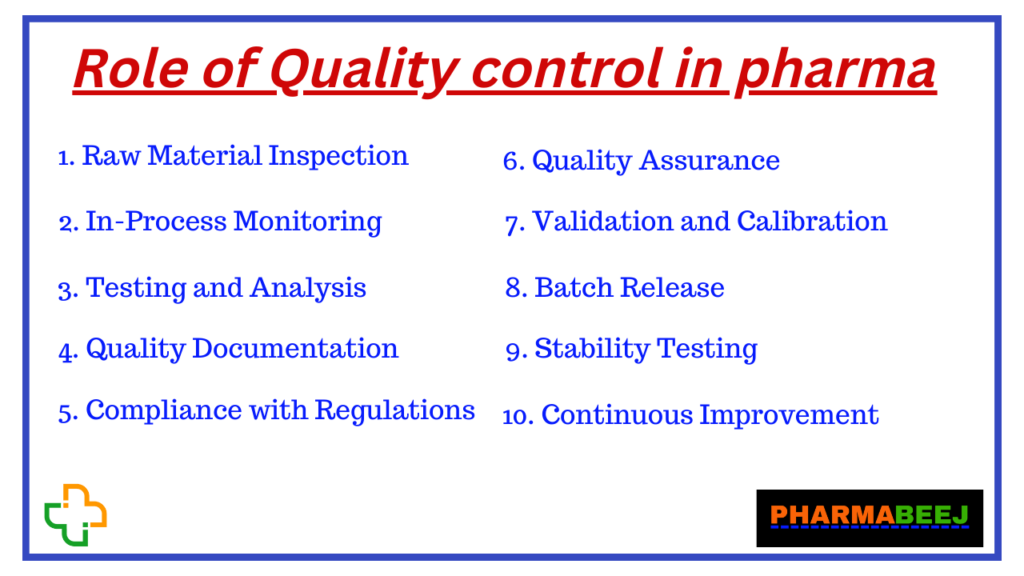Key role of Quality control in pharma?
Key role of quality control in pharmaceutical industry include:
1. Raw Material Inspection:
Ensuring that the raw materials used in the manufacturing process meet the required quality standards. This includes testing and verifying the identity, purity, strength, and quality of the raw materials.
2. In-Process Monitoring:
Regularly monitoring and evaluating the product at various stages of the manufacturing process to identify any deviations from established specifications. This helps in preventing potential issues and maintaining product consistency.
3. Testing and Analysis:
Conducting comprehensive laboratory tests and analyses to assess the physical, chemical, and biological properties of the finished pharmaceutical products. These tests ensure that the products are safe, effective, and meet the intended specifications.
4. Quality Documentation:
Maintaining accurate and comprehensive records of all testing and quality control activities. Proper documentation helps in tracing the product’s history and demonstrates compliance with regulatory standards.
5. Compliance with Regulations:
Ensuring that all quality control activities adhere to relevant regulations and guidelines, such as those set forth by regulatory bodies like the U.S. Food and Drug Administration (FDA), the European Medicines Agency (EMA), and other international regulatory agencies.
6. Quality Assurance:
Collaborating with quality assurance teams to develop and implement quality control processes and procedures that align with industry best practices and regulatory requirements.
7. Validation and Calibration:
Validating and calibrating equipment and testing methods to ensure accurate and reliable results. This helps maintain the integrity of quality control testing procedures.
8. Batch Release:
Reviewing quality control data and documentation to determine whether a batch of pharmaceutical products meets the predefined quality standards and can be released for distribution.
9. Stability Testing:
Conducting long-term and accelerated stability testing to assess the shelf life and storage conditions of pharmaceutical products over time.
10. Continuous Improvement:
Identifying areas for improvement in the quality control process and implementing corrective and preventive actions to enhance product quality and safety.
Overall, the role of quality control in pharmaceutical industry is a critical aspect of ensuring that pharmaceutical products are manufactured consistently and meet the highest standards of quality, safety, and efficacy for patients’ well-being.
Hope, you understand the role of quality control in pharmaceuticals which plays critical role to find the quality of the product.

Also Read:
- Clinical Data Management Interview Questions And Answers
- HPLC Calibration Parameters in pharma
- How to Do Calibration of FTIR Spectrophotometer?
- How to prepare 0.5M HCl Solution?
- What is Phase 0 clinical trial in pharma?
- Understand 14 ICH guidelines in short
Refer YT Channel: Pharmabeejpro